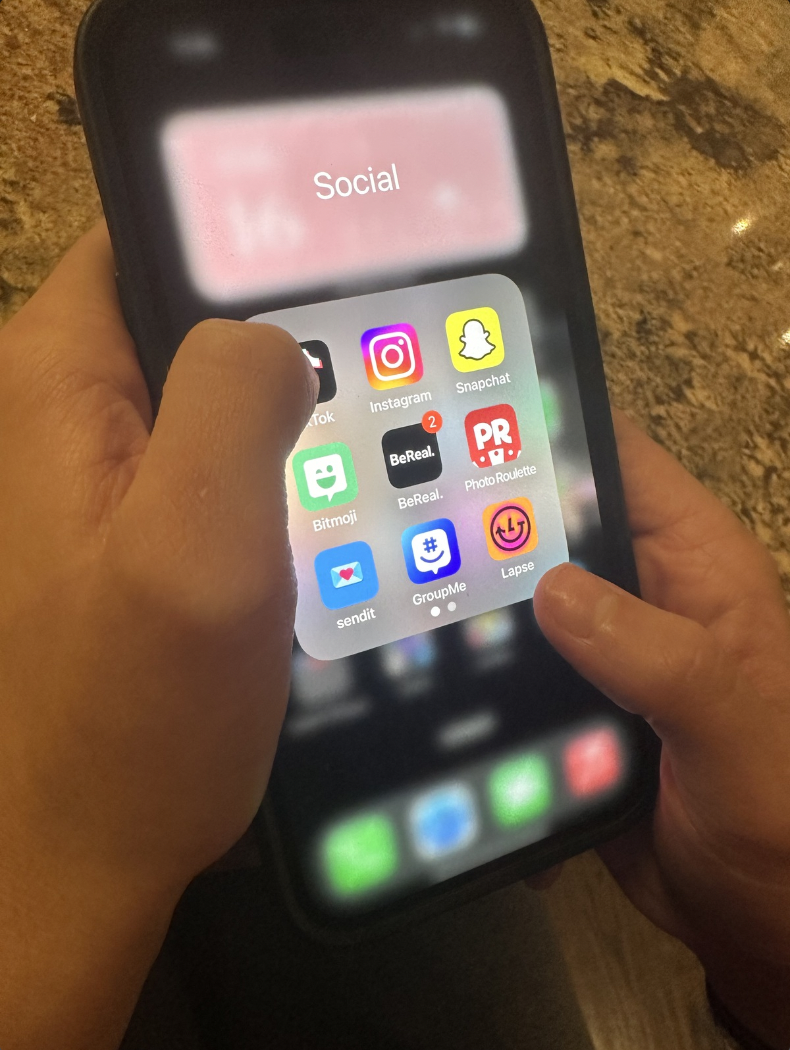Whether it be to communicate with friends, relax, or entertain, social media continues to prevail in the lives of students, gaining popularity in recent years. Social media first started out on platforms such as Facebook and Twitter, but has now expanded to many others like Instagram, Snapchat, TikTok, VSCO, and BeReal.
Since 2012, the amount of time spent on social media has steadily increased. Now, people of all ages typically spend around 151 minutes of their time scrolling online, while only 90 minutes were spent on the same activity in 2012.
Social media certainly has its benefits which include allowing people to stay connected to friends and family, making it easier to follow current events throughout the world, and providing sources of entertainment. According to the New South Wales (NSW) Department of Education’s Digital Citizenship website, social media can also help children to build digital citizenship skills, including responsible online interaction and sharing of content, and building and maintaining a positive online identity and reputation.
“It’s nice to have a break sometimes to just talk to your friends, so I feel like I need social media in that way to stay connected to people,” senior Elizabeth Vezenov said. “It’s also a really nice mental break.”
However, if social media is used for reasons other than what is intended, like promoting negativity, its unpleasant effects outweigh the positive. Starting out as a place for communication, social media sites have evolved into platforms that promote extreme negativity. False body standards are promoted, creating a toxic image that people believe they “should” or “must” look like to feel accepted in society. The American Psychological Association reports a study showing that when individuals reduce their use of social media to less than an hour per day, the way they view their body weight or appearance improves.
Not only can social media platforms promote unrealistic body standards, but they also cause people to compare themselves with others, especially people of a similar age group or background. The comparison may lead others to question why some people appear to be living such an amazing life, while they may feel the opposite.
“You can kind of feel like everybody is having a bit more fun and doing better than you,” school psychologist Mr. Cotie Strong said. “It can give a sense of missing out on things or make it seem like if others are having fun, why am I struggling?”
Social media creates an environment that appears to be much more realistic and applicable to reality than it actually is. Although individuals can communicate constantly with each other, conversations that occur on platforms like Snapchat cannot be compared to those that occur in real life. The Social Media Victims Law Center says that social media has the potential to inhibit students’ abilities to form meaningful conversations or read body language in person, which are essential skills for communication.
“Social media provides a way for people to hide,” guidance counselor Mrs. Samantha Trachtman said. “People choose to use it as a format to handle difficult situations which takes away from learning how to face difficult situations and learning how to communicate with others.”
While social media allows people to feel more connected to the world around them, it seems as though those in the spotlight are almost always out of reach for the common person. Since only tremendous achievements are shown, it may make consumers of social media feel as though their own accomplishments are never enough.
“Everything you see online is all of these incredible accomplishments that should be celebrated,” Mr. Strong said. “But it’s almost like unless you set a school record or a [personal record] it is not as rewarding as it was when you worked towards your own goals.”
Rice University said that in an online study of more than 10,000 parents, around 70% of them believed that social media proved to be a distraction for their children. Although social media can be a source of entertainment, it can easily cause a person to lose track of time. When time is spent on social media that should be spent on more important tasks, like doing school work, it can add stress into a person’s life.
“When I’m at home and supposed to be doing my homework, I wait [until] the last minute because I’m on my phone and on social media,” senior Morgan Pera said. “It makes doing work a little hard.”
With the challenges presented by social media specifically to this generation, it is essential that students take the time to step away from their electronics occasionally. Cell phone companies have worked on ways to limit constant social media usage by creating resources like screen time limits. Although social media will likely be prevalent in students’ lives for a very long time, restricting electronic usage or simply setting time aside to take part in other activities, like going for a walk, can prevent it from overtaking aspects of life.
“Take time to be outside, get off your computer, cell phone, and social media,” guidance counselor Mrs. Christina Piascik said. “Spend time in nature, smile, and laugh with those close to you.”



